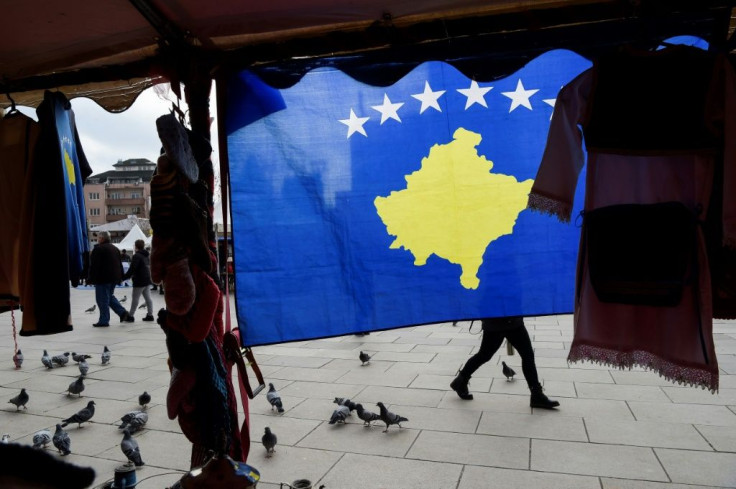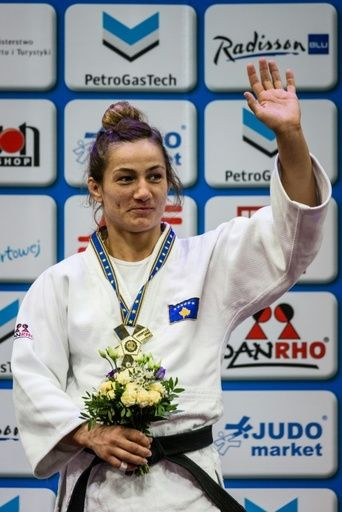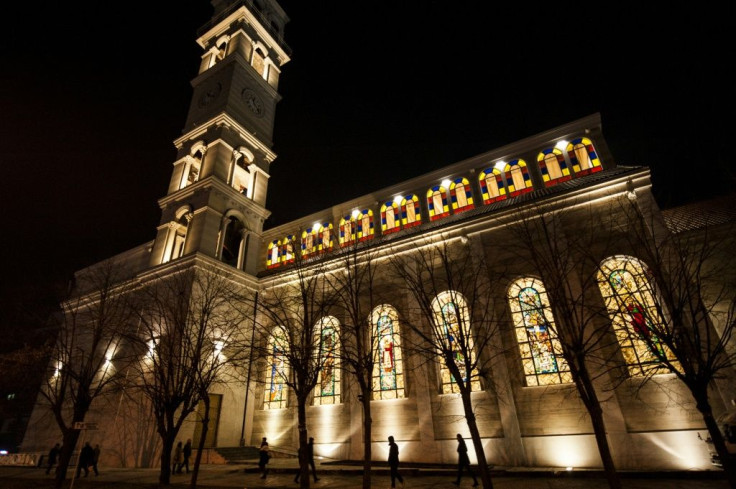'Towel' Flag, Judo And Pop Royalty: Five Things To Know About Kosovo

Kosovo, which holds early legislative elections on Sunday, is one of the world's youngest democracies.
Here are five things to know about the former Serbian province which declared independence in 2008.
'Towel' for a flag
Kosovo's flag bears the diamond shape of its territory and six yellow stars, for its six main ethnic groups, on a blue background.
It is jokingly called a "towel" by members of Kosovo's ethnic Albanian majority who believe it was adopted largely to please Western patrons.

The flag more commonly flown across Kosovo is that of neighbouring Albania -- a black double-headed eagle on a red background.
America's stars and stripes are also popular, owing to Washington's strong support in Kosovo's struggle for independence from Serbia.

In acts of gratitude, citizens have also erected statues of US president Bill Clinton and a bust of former US secretary of state Madeleine Albright in Pristina, and named a boulevard after another president, George W. Bush.
In the areas home to Kosovo's ethnic Serb minority, the "towel" is rarely seen and instead, the Serbian flag dominates.

Judo icon
Kosovo beat its big brother Albania to an Olympic medal during the country's first appearance at the Games in Rio in 2016, when Majlinda Kelmendi took gold, making her a national hero.
Sporting events are often an arena for diplomatic tensions with Serbia, which was not pleased to see Kosovo admitted to the International Olympic Committee in 2014.
Kosovo's footballers have also gained fame, both in the national team and in European clubs.
Pop stars and youth
Kosovo is home to around 1.8 million people but another 700,000 are estimated to live abroad, mostly in Germany and Switzerland.
The diaspora, which has its own ministry, is also a hefty economic force, sending home more than 800 million euros ($900 million) in 2018.
Some of its most famous ambassadors are pop stars: Dua Lipa and Rita Ora both have Kosovo roots.
At home, Kosovo has one of the youngest populations in Europe, with roughly half of its citizens under the age of 25.
Cathedral of gratitude
More than 90 percent of Kosovars are Muslim, but one of the Balkan region's largest Roman Catholic cathedrals sits in the centre of Pristina.
Dedicated to Saint Mother Teresa, of ethnic Albanian heritage, the church was built as a symbol of gratitude to the West for supporting Kosovo's independence.
© Copyright AFP {{Year}}. All rights reserved.





















